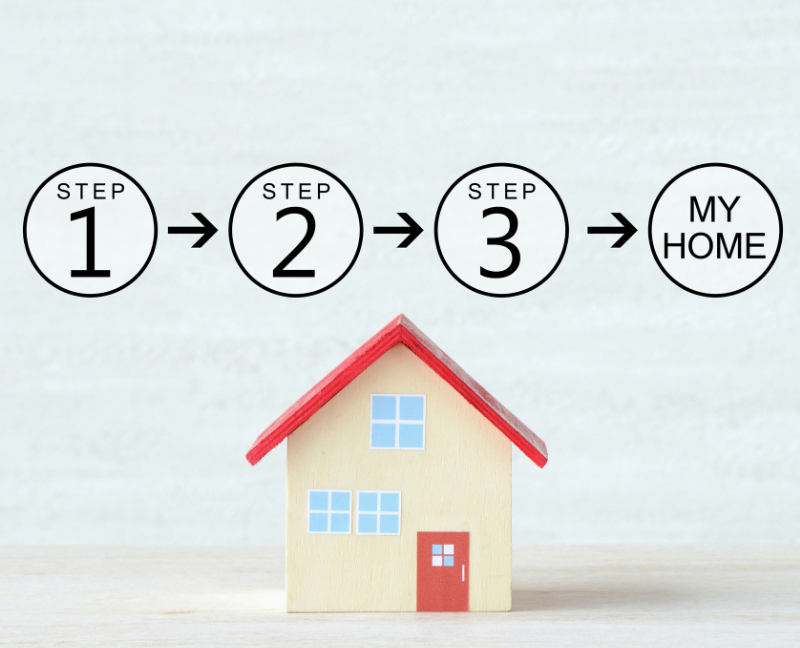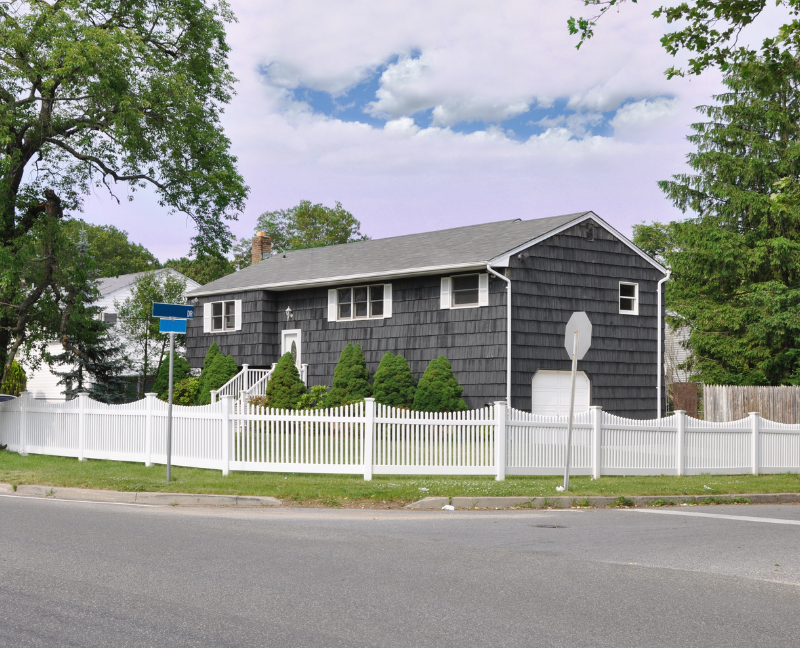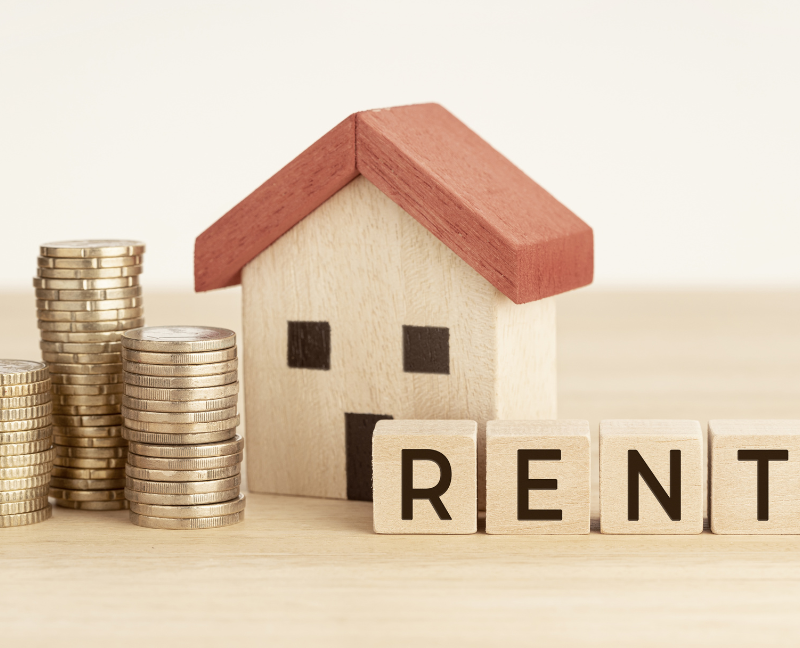The real estate industry is only one of the many industries artificial intelligence (AI) has changed. AI is becoming a vital tool for real estate agents, investors, buyers, sellers, and other stakeholders due to its capacity to analyze enormous volumes of data, automate procedures, and offer insightful analysis.
However, there’s still an unanswered question going on for a long time: will AI replace realtors and their services? The short answer is no.
Instead, AI complements what they offer, thus providing a positive effect on both the real estate industry and customers.
The capacity of AI to process and analyze enormous volumes of data is one of its most important benefits in the real estate industry.
AI algorithms can be used by real estate brokers to gather and evaluate demographic data, property data, market trends, and other pertinent information. They obtain important knowledge about pricing, demand trends, investment possibilities, and property comparisons by doing this.
To determine a property's fair market value, artificial intelligence can gather enormous volumes of data from a variety of sources, including past transactions, the characteristics of the property, and the state of the market.
AI-enabled tools can spot developing markets, forecast changes in real estate values, and make data-driven investment choices. Artificial intelligence can be useful in predicting future trends in the residential and commercial real estate markets, even though it is not a crystal ball.
Platforms with AI capabilities have greatly enhanced the home-search experience for investors and buyers alike. These services generate individualized property recommendations based on local data, historical trends, and user preferences through machine learning algorithms.
To make the process of finding a property easier, artificial intelligence can consider a variety of aspects, including location preferences, desired amenities, budget, and more. For buyers, investors, homeowners, and even real estate brokers helping their customers, this new technology saves time and effort.
AI is not the enemy in real estate. Artificial intelligence can be a huge asset in giving investors, house sellers, and purchasers a more accurate and tailored experience. Furthermore, artificial intelligence can be used by real estate firms to customize their services to meet the unique needs of each customer.
The way properties are marketed using augmented reality (AR) and virtual reality (VR) technologies has been completely transformed by artificial intelligence. By using virtual tours, potential investors and purchasers can inspect homes from a distance, which can save time and money.
Using floor plans and other information, AI technology can also create 3D models and renderings of properties, providing investors and buyers with a realistic representation of the area. Before in-person visits, this immersive experience helps you refine possibilities and make educated judgments during the home hunt.
When looking for a home in a new real estate market, prospective buyers from out of state can benefit greatly from virtual tours. While taking a virtual tour of the property cannot substitute seeing it in person, AI can assist prospective buyers learn about the essential features of the house.
Accurate property pricing is essential for real estate agents and sellers. To identify the best pricing tactics, AI algorithms can examine past data, market trends, property features, and regional considerations.
Before the development of artificial intelligence, property values were manually determined using data from previous sales in the area. However, AI in real estate can produce more accurate property prices, benefiting both buyers and sellers, thanks to machine learning and predictive modeling.
Real estate experts and agents may forecast property demand, find possible buyers, and suggest competitive prices by leveraging predictive analytics technologies. Sellers can improve their listings, draw in more potential customers, and close deals more quickly with the help of AI-powered pricing tools.
AI is automating a lot of the work in property management and making it more efficient. Intelligent systems are capable of optimizing building operations, detecting maintenance difficulties, and monitoring and controlling energy consumption. This not only saves money but also makes the occupants happier.
AI-powered software simplifies administrative work, keeps track of lease agreements, oversees maintenance, and offers individualized tenant services to real estate brokers handling numerous properties.
These astute technological developments free up professionals' time and resources so they can concentrate on higher-value tasks.

Although artificial intelligence (AI) has great promise for the future of many industries, including real estate, it is unlikely to displace the real estate industry entirely for several reasons.
Complex decision-making procedures involving real estate transactions call on human judgment and experience.
Artificial Intelligence (AI) might be able to evaluate data and offer insights, but it is unable to comprehend the complex desires and feelings of consumers and sellers. AI cannot easily replace the individualized counsel, bargaining skills, and recommendations that real estate brokers provide.
Property transactions are frequently emotional and private affairs. Consumers like the personal touch and credibility that real estate brokers provide.
An AI system won't be able to build the same kind of connection or offer the emotional support that customers frequently need in these kinds of interactions.
The real estate markets in different places differ significantly. Real estate brokers are extremely knowledgeable about local amenities, zoning laws, market trends, and particular communities.
To give clients reliable counsel and guidance, localized expertise is essential. Without access to complete and current data, AI systems may find it difficult to reproduce this expertise.
Outstanding communication and negotiating abilities are necessary while negotiating the parameters of a real estate transaction. Real estate brokers are skilled negotiators who can speak up for the interests of their clients.
Even if AI is capable of using data analysis to recommend negotiation tactics, it might not have the interpersonal abilities needed to handle difficult discussions.
Both substantial financial outlays and legal requirements are present in real estate purchases. Real estate brokers are frequently relied upon by clients to guarantee a seamless and compliant transaction.
Real estate agents have a fiduciary commitment to their customers. This entails controlling any risks, maintaining confidentiality, and safeguarding their interests. In these transactions, the human aspect fosters confidence and establishes accountability.
Artificial Intelligence (AI) has revolutionized the real estate industry, offering advantages to consumers, sellers, investors, and professionals alike.
Artificial intelligence (AI)-powered technologies have completely changed the real estate industry, from data analysis and market insights to virtual tours and predictive analytics. Even if artificial intelligence (AI) makes decisions easier, increases productivity, and streamlines procedures, it is unlikely to completely replace the function of real estate experts.
After all, nothing beats an amazing real estate agent.
Interest rates were roughly 3.5% in 2013; however, during the COVID-19 pandemic, they fell as low as 2%. Since purchasers no longer had to include a sizable amount of interest in their monthly payments, this greatly reduced the cost of homes. Interest rates have remained relatively low in 2024, averaging 6.5% compared to 2024 levels of about 8%. Thankfully, buyers who are worried about loan rates or just want to acquire good offers have options. This means it might be possible to benefit from a seller's favorable interest rates by accepting an assumable mortgage.
The thing is that mortgages that are assumed can be trickier than they appear. Accepting one of these loans has advantages, no doubt, but there are cons as well. Therefore when looking for a home, it’s best to understand how to find the right assumable mortgage first.
Basically, a seller who transfers a mortgage to a buyer is considered an assumable mortgage. This means that the monthly payments, interest rate, remaining principal, and other terms and conditions are assumed by the buyer. The payment on the mortgage comes after closing of the property.
When a buyer accepts an assumable mortgage, they are not required to apply for loans through the conventional procedure of loan shopping. Even though taking on an assumable loan still requires review and underwriting, the buyer cannot switch lenders or leave the property while the mortgage terms are still in place. The buyer, house, financing, and lender were all connected as a single entity.
Assumable loans gained popularity when the interest rates were still high. Buyers search for loan suppliers offering exceptional loan conditions that they can't find elsewhere. Assumable mortgages are something that sellers can advertise to purchasers and their real estate agents to make their homes more appealing.
The assumable loan may make the house appear more affordable to buyers, therefore raising the property's perceived worth.
Purchasers can take over sellers' mortgages with many lenders. It may still be possible for you to take on those mortgages if you have a VA loan or are considering a home with an FHA loan. These are some resources that you can utilize.
USDA Loans: For eligible buyers, loans from the United States Department of Agriculture (USDA) may also be taken out. USDA loans are designed to help people buy houses in rural areas.
Finding assumable mortgages is frequently not the most challenging part; finding sellers who are aware that their debt can be assumed is. Sellers should thoroughly understand how it works and market any alternatives they may have for debt assumption alongside the rest of their property.
It's not a good idea to take on an assumable loan just because you can. Before accepting the loan balance, it is crucial to assess your financial situation and the macro trends. Here are some factors to think about while assessing whether or not to adopt a mortgage payment.
Taking out a mortgage isn't always the best option. Although many customers find this to be a good alternative, it might not work best for your current situation. With the chance to refinance at a reduced interest rate later on, you might be better off paying a conventional mortgage payment in the short run.
You can begin your search for an assumable mortgage once you have a firm understanding of them and determine that they are the best option for you. You may get in touch with sellers regarding these mortgage loans in a few different ways.
Be aware that assumable mortgage listings may be difficult to find, especially if they are not common in your area. The loan assumption might need to be included in your offer. To successfully take on a seller's loan for a home you adore, follow these instructions.
Purchasing a home with an assumable mortgage follows the same procedures as any other real estate transaction, which might mean working with a reliable real estate agent first.
Before hiring a real estate agent, ask them about their experience with an assumed mortgage. Check to see if they have previously assisted buyers looking for assumable loans and if they have previously dealt with sellers who have taken the lead on assumable mortgage listings. Your agent will be able to expedite the transaction and improve the likelihood of a smooth closure if they have experience on both sides of the real estate process.
Our team at RE/MAX Advanced Realty are trained, licensed and, and experienced when it comes to assumed mortgage as well as home selling and buying transactions in Indiana. You may reach out to us today to know more about our offers or to find the best realtor near you.
Finding homes that fit your ideal requirements is what your real estate agent is supposed to help you with. They can recommend affordable homes in the neighborhood of your dreams. They can also search for properties where an assumable loan is listed if you specifically request an assumable mortgage.
As a buyer, you have resources available to examine homes and understand your options. Use websites such as Zillow and Trulia to find possible Indiana homes. Read the home description carefully to see whether an assumable mortgage is offered or not.
To learn more about possible houses, your realtor may also have access to extra resources and data that have been taken from the multiple listing service (MLS).
Finding a home that suits your needs might be challenging; however, as long as you’re working with the right realtor, it can be easier to find high-potential residences you can visit.
The Multiple Listing Service (MLS) is a great resource for finding assumable mortgage options in your area. Listing agents use this feature to post property details and share them with other agents in the neighborhood. A lot of real estate websites use the MLS to get information that is consistent across apps.
Once you inform your real estate agent that you are considering taking on a mortgage, they will look through the multiple listing service (MLS) for properties that make this clear. They will then go on to find other crucial search criteria. For instance, based on your needs, they might verify the number of bedrooms and bathrooms or limit the search to particular regions.
Thousands of listings are whittled down to a select few top choices by buyer's agents with the help of the Multiple Listing Service (MLS). One more filter to add to the process is to make an assumable mortgage one of your requirements.
You may be able to get in touch with lenders and banks if you and your real estate agent are having trouble locating homes in your neighborhood that offer assumable financing alternatives. They might be able to locate these loans in live listings.
In case the seller of a home you are interested in is unaware of the possibility of mortgage assumption, your Realtor may also be able to get in touch with a lender on your behalf. Even though the seller and the listing agent ought to be able to conduct this independent research, particularly if doing so would require receiving offers on the property, there are situations in which they are unable or unwilling to do so. Your Realtor can step in for them.

It's critical to understand how assumable mortgages operate before delving further to locate them in the location of your choice. When you purchase a home, there are certain advantages and disadvantages to having an assumable mortgage.
The reduced interest rate is the primary advantage of taking out an assumable mortgage. On the other hand, purchasers may also find it easier to expedite the acquisition process because of the extra closing cost savings and shorter approval timeframe. Buying can be less stressful with an assumable mortgage.
When it comes to assumable loans, the buyer's down payment is one of the main worries. For example, if the seller funded $350,000 of the home's $400,000 purchase price, the down payment would have been $50,000. If the house sells for $500,000, the buyer's down payment increases to $150,000. If a portion of the loan has been paid off by the seller, this could be considerably greater.
Not all purchasers can afford to take on an assumable mortgage because of their little down payment. In addition to matching the seller's down payment, they also have to pay for the appreciation of the house and whatever portion of the loan that the seller has paid down.
Because of this, even though purchasers ultimately save money with reduced interest rates, assumable mortgages are costly in the short term. You might require additional cash on hand.
If you are unable to make the required down payment, you may still proceed with an assumable mortgage by taking out a second loan. To cover the remaining amount, you would obtain a second mortgage and take over the seller's mortgage. Although this is an option, it carries risk for the lender as well as the customer.
Lenders are concerned that buyers may default on one of the loans because they are required to make two payments every month. Due to the higher risk, you might not be able to receive good rates on the second loan.
You may be better off acquiring a conventional loan instead of taking on an assumable mortgage and a second mortgage at the same time. Make sure the math makes sense and that you will save money over time by running the figures.
With assumable mortgages, purchasers can take advantage of better interest rates, which lowers their monthly payments and overall housing expenses. But finding them can be challenging. If you locate a seller who is offering an assumable mortgage, the possible down payment can be beyond your financial means.
Have you had your house up on the market for a long time, but you're not getting many responses from potential buyers? If yes, you might find yourself wondering why your house isn't selling."
More often than not, the financial aspect of the transaction has a greater influence on why a house stays on the market longer than anticipated.
According to data from the Federal Reserve Bank of St. Louis (FRED), houses in the US were on the market for a median of 43 days as of May 2023. Compared to the June 2021 purchasing frenzy, when homes were on the market for a median of just 35.5 days, this is a modest uptick.
Numerous factors, including alterations in buyer behavior, variations in inventory levels, and variations in property prices, could be responsible for this trend.
In this post, we will talk about the usual causes of why your home is not selling and provide expert tips on how to make things better.
It's normal to be concerned if your house isn't selling as soon as you want, as selling a house is a big undertaking.
When your home is for sale, keep an eye out for these crucial indicators that suggest it may be time to get concerned:
Above Average Days On Market: You should be concerned if your house has been on the market for a longer period than the median days on the market that your neighborhood is currently seeing. The average number of days that US properties were listed for sale was 43 as of May 2023. It may be time to reconsider your approach if your house has been on the market for a longer time than this without drawing any solid offers.
Changes in Home Prices: If the value of homes in your neighborhood is dropping and the price you have set for your house is based on earlier, higher values, prospective buyers may think it is too expensive. The median price of a home has decreased somewhat in 2023.
Consistently Negative Feedback: If prospective buyers are consistently commenting negatively on certain features of your house, such as the design, condition, or asking price, this may indicate that adjustments need to be made.
Few Showings or Low Online Interest: If your home isn't having many showings or if there isn't much interest being generated by the online listing, that's another indication that you should be concerned. This may mean that buyers aren't finding your house appealing for whatever reason—it might be the pricing, the quality of the images, or the marketing strategy used.
A property's saleability is influenced by a wide range of elements in the dynamic real estate market. These factors may include an expensive listing, a slow real estate market, the need for renovations, insufficient advertising, or even the absence of a knowledgeable real estate agent.
Additionally, external factors such as economic trends, mortgage rates, and seasonal swings might also play an impact.
Here are some reasons why your home might not be selling:
A significant portion of prospective buyers will not be interested in your home if it is priced higher than they would expect for the neighborhood. You must conduct some study to determine whether your home is too expensive or not.
To find out what comparable properties have sold for in your community, check up recent sales. This is a good estimate of the worth of your home if you can locate a recently sold home in your community with comparable square footage, number of bedrooms, and number of bathrooms. Working with your real estate agents and asking relevant questions can help, too.
The best course of action, if your home has been overpriced, is to reduce the price to closely match the properties in your neighborhood. This can make your house appeal to more purchasers and have a higher chance of selling.
Potential purchasers may be turned off by your home's need for repairs unless you are specifically offering it as an as-is fixer-upper. Make sure to address any significant problems, such as leaks, cracks, or holes in the walls, before listing your house for sale. It's advisable to think about doing some aesthetic adjustments, such as repainting the walls or changing the fixtures.
By making these adjustments, you'll attract more purchasers and expedite the sale of your house.

Home prices are declining and property markets are cooling across the US. This can be a major factor in the failure of your house to sell.
It could take longer for your house to sell if the local real estate market is sluggish, especially if you're not getting the price you want. Although you frequently have little influence over this, you still have choices.
In a weak market, you can assist sell your house by lowering the listing price, providing incentives, or being flexible with the closing date. Another option would be to rent out your house while you wait for the market to improve.
It's possible that your house isn't selling because you didn't take the time to stage it for pictures and showings. The speed at which your house sells may be impacted by the staging you do.
It will be challenging for purchasers to appreciate the potential in your house if it is disorganized or unkempt.
Before marketing your house, make sure to thoroughly clean and clear it. You should also consider hiring a professional stager to assist you arrange furniture and décor in a way that is attractive to the eye.
Your home will appeal to more buyers and have a higher chance of selling quickly if you take the time to prepare it appropriately.
Your home may take longer to sell if it is in a poor neighborhood. Although you normally have little control over this, there are some things you may do to lessen its impact.
Keeping up with the upkeep of your house is one thing you can do. This will increase its appeal to buyers and help it stand out from other houses in the neighborhood. In your listing, make sure to emphasize any advantages the location may have. Mention things like how close your house is to parks or reputable schools.
Even though you are unable to relocate your house, there are still things you may do to improve its appeal to potential purchasers.
When a prospective buyer pulls up to your house, they will first notice the exterior. Buyers may be put off by your house's unattractive outside before they ever enter.
Organizing the yard is the first step in increasing curb appeal. Trim the lawn and get rid of any dead plants or weeds. To give a pop of color, you should also think about adding some potted flowers or plants.
Next, shift your focus to the exterior of the house. If required, pressure wash the siding and clean the windows and doors. These small adjustments can have a significant impact on how buyers find your house.
The majority of purchasers in today's digital environment begin their search for a home online. This implies that the images of your house are crucial. Buyers will be turned off by dark, grainy, or oddly angled images and will be less inclined to come to view your house in person.
Ensure working with a professional photographer to get stunning images of your house. The nicest aspects of your house should be highlighted in these pictures, making it appear as welcoming as possible.
A buyer's first thought when viewing an outdated-looking home is probably going to be extensive upgrades. That alone is enough to bring to mind visions of an enormous undertaking with an expensive price tag.
There are a few things you may do to update the style of your property if it isn't very appealing to purchasers. Modernizing the hardware and fixtures around the house is one thing you may do. This covers hardware such as cabinet knobs, light fixtures, and door handles.
You might also try painting the walls or changing out the flooring. Although these modifications may cost more money and time, they can significantly update your house and increase its buyer appeal.
These are reasonably priced improvements that can significantly alter the way your house looks overall.
These are just some of the reasons why your home might not be selling. In the second part, we'll talk more about this and help you address them so you can sell your property quickly.
The truth is that it's not as difficult as you may believe to sell your house while it's in bad shape. Don't give up if you're in a tight spot financially and are unable to even consider selling your ugly house because you feel you should make the necessary repairs first.
Perhaps your home is decades old, and you don't have enough money to make the necessary structural and aesthetic renovations. You are aware that the foundation is deteriorating or that the roof has to be replaced immediately.
A filthy, old, and worn carpet? The kitchen shouts gold harvest and 1970s avocado green.
Perhaps the neighborhood was wonderful twenty years ago, but today it's just crumbling houses, including yours. Or maybe you had a rental home that had renters who broke expensive things.
If you approach a real estate agent, you will probably encounter passionate demands to invest money you don't have and do significant repairs to make your home appealing to potential purchasers. Even if you manage to persuade a real estate agent to market your home "as-is," it will probably remain unsold since potential buyers won't even consider it when they drive by or view the online photo.
You don't have to feel stuck, though. It will be simple, quick, and painless to "sell your house" with RE/MAX Advanced Realty.
RE/MAX Advanced Realty starts by inspecting your home, compiling information on the neighborhood, and, in most situations, providing a free quote.
There's a strong chance we'll acquire your house exactly as it is if you choose to move forward. You won't have to put off dealing with your difficult circumstances, pay for any necessary expensive repairs, or worry about having to make more mortgage payments on your home. Additionally, you won't have to stress about an extended closing time.

We'll begin by figuring out how much your house is worth. The pricing will be determined by taking into account the item's worth when the repairs are finished.
For homes in rough shape, replacing carpets, painting walls and trim, updating fixtures, cleaning and painting gutters, painting the outside, landscaping, HVAC repairs, foundation repairs, and kitchen and bathroom improvements are some of the most frequent repairs that are factored in.
After that, the profit, holding/selling costs, and repair costs are deducted. After we get the necessary data, we will schedule a meeting to inspect your house. We will then talk about your alternatives after that. We will talk about the cost, the terms of the contract, and the closing date if we can assist you. After that, you can go with a cheque in your pocket and no house.
In addition to offering advice on how to sell your home, we will sell your house for a reasonable price. Selecting a real estate broker is never cheap in case you didn't know. Commissions and sales discounts are typically included in the costs of hiring a real estate agent. They also cover the fees of the survey, closing, and title. The last category is holding costs, which include utilities, taxes, insurance, and yard upkeep. The typical duration of holding costs for a house on the market is between six and nine months.
When you're ready to sell your house, get in touch with our team at RE/MAX Advanced Realty to get started.
Having an additional bathroom in your home can seem like a luxury, particularly if you have a growing family or are having overnight guests.
However, not every shower is made equal. Walk-in, stall, and corner showers conserve space, although they may need compromises.
Think about the sacrifices you might need to make to maintain cleanliness in small spaces, whether you're putting one in a brand-new bathroom or simply thinking about adding one to an already-existing half bathroom.
In a corner shower, even the stylish bathers may get a sense of the glass walls closing in on them. For walk-in showers, it's generally recommended that they provide at least 36 by 36 inches of area. Anything smaller could make you feel a little cramped.
Standard prefab shower kits are well-liked since they don't take up a lot of room and are reasonably priced. Their sizes usually vary from 31 by 31 inches to 36 by 48 inches.
Look for a showroom with models you can enter to determine whether there will be enough space for you to feel comfortable taking a shower before making a decision. But don't just enter and act like you're taking a shower.
Ask yourself: is it easy to reach everything?
Find out if you can bend or stretch comfortably.
If you have a problem doing any or all of these, it’s time to re-evaluate the space of your bathroom.

Having an additional shower might increase your property's value, but there’s no guarantee of that.
Many homeowners believe this – that adding more showers can have a positive effect on the property’s value. However, that relies on the buyer whether they like this or not. There’s no use adding a shower if it’s not going to be utilized.
Therefore, there's a strong possibility you'll be adding value if, for example, you add a brand-new stall shower to a master bedroom that didn't have a master bath and the other homes in the neighborhood don't have one either.
Adding a stall shower to a powder room off the kitchen or in the basement, on the other hand, might not be something buyers will use frequently enough or see the benefit of having.
Consider whether the amount you are spending will yield a return on your investment, just like you would with any home repair, and get the advice of a reputable real estate agent for their perspective.
However, it's not always about turning a profit on a home upgrade. Sometimes the upgrades are just made to make your house more enjoyable. Install and enjoy once you've figured out it's the perfect fit for you and your home, both literally and figuratively!
It's not too late if your goal was to sell your house before fall but you haven't found the ideal buyer yet. Many homeowners believe that selling their house in the spring and summer will benefit their chances of getting a higher price. However, selling your house before the end of the year has several advantages, too.
That said, we recommend that you consider a fall listing. The fact that there are still a lot of buyers out there searching for the ideal house might surprise you. Additionally, you lose out on possible purchasers for your house if you remove it from the market or never list it at all. Let's find out the advantages of selling your house before the end of the year.
Eliminating competition is one of the main advantages of listing your house in the fall. There will be more interested purchasers for your home because the majority of home sellers have the mindset that their property won't sell because autumn has arrived.
A higher selling price could also arise from little or no competition. Buyers who aim to move into their new home before the holidays are more likely to make an offer at or near the asking price.
You might believe that listing your home in the fall or winter will never result in a sale. After all, moving will be challenging due to the weather. However, you want to take advantage of that point. It could seem urgent to a buyer to relocate before the worst of the weather arrives. A quicker sale and a higher price could arise from this.
Just make sure your home is ready for a move-in. That will facilitate its speedy sale when the inclement weather and the holidays get near. Customers will feel more at ease knowing that they won't need to do much work on it and that it will be livable until the time comes for them to update the color schemes to their preferences.
The fact that this is the off-season for home purchases is well-known to banks and lending organizations. Because of this, purchasers have access to lower interest rates. They will want to purchase that house before the rates rise once more, which will be advantageous to you as the seller.

When purchasing or selling a home before the end of the year, there are tax benefits available to both parties.
The interest paid on the mortgage will be deductible for the buyer, which is advantageous regardless of the size of the amount. The ability to deduct property taxes and, in certain situations, closing expenses is another tax benefit available to homebuyers.
As previously mentioned, purchasers will have fewer options when they sell in the fall or winter. As long as it is inside the market, your chances of getting the price you want are higher. You can always count on a speedy sale of your house if you price it correctly. It will be more favorable for buyers to purchase in the fall or winter when there is less likelihood of a bidding war.
Arranging a fall or winter ad will bring in lots of business for both you and your buyers in the furniture and hardware stores in your community. A wide range of home remodeling products, along with alternatives for furniture, décor, and lighting, are on sale.
You can see that there are many excellent reasons to sell your house in the winter or fall. Never listen to someone who suggests something is difficult or perhaps impossible. To help you with the sale of your house, there are a few things you should do:
Our team at RE/MAX Advanced Realty is dedicated to helping you sell your home fast and seamlessly. Call us today or leave a comment to get started.
Whether you're looking for a corner lot to build your dream home on or are hunting for your ideal home, you may have noticed one and wondered if it's a suitable location.
A corner lot is a plot of property located where two streets or roads intersect. The streets usually run along one side and the front of the lot. Corner lots can be found in various places, such as the center of a neighborhood or at the end of a busy street.
When developers first began constructing cookie-cutter McMansions in the 1990s, it was difficult for builders to sell homes on corner lots. Among other things, buyers did not like the increased street visibility, reduced privacy, and noise.
To offset the criticism, some developers chose to charge a premium of $5,000 to $10,000 for these corner sites. This attracted attention, and the lots started to sell. Nowadays, their popularity is more akin to that of living on a dead end. In the current market, a corner lot is always selected because of the features and numerous advantages these pieces of real estate provide buyers.
Before you purchase or construct your next home on this particular kind of unusual zoning lot, we'll go over the advantages and disadvantages of corner lot homes to help you make an informed selection.
The extra yard area that a corner lot provides over other ordinary lots is one of its biggest benefits. This makes it possible for a house to have a distinct layout for the yard and floor design. An excellent curb appeal option would be a side-entry garage rather than a front-entry garage, as the front of your house would not be hidden.
Additionally, you have more space to design outside spaces that may support different activities, such as a pool, kid-friendly play equipment, a larger garden, or just more area for sports or social events.
Since no other houses are typically obstructing the sunshine on three of the four sides, corner lots tend to have higher levels of natural light than other types. As the day goes on, natural light pours into your home from every aspect, especially in properties facing south. Also, most plants that enjoy the light thrive in it.

You won't feel nearly as vulnerable when you spend time in your backyard if you only have one neighbor close by. You can erect a privacy fence to keep others from looking in if you're worried about people using the sidewalks. Find out whether there are any fencing limits, particularly about height and material limitations.
Building a house on a corner lot will provide you with a great deal of freedom if you love the spotlight and experimenting with gardening and landscaping ideas because your property will stand out in the area.
Since the yards on these homes are usually larger, they could need more maintenance. When it comes to maintaining your lawns, landscaping, and clearing other debris, be ready to put in more effort. Alternatively, save more cash to hire gardeners and other essential service providers.
Due to their location, corner properties receive a lot more traffic, which increases noise levels, the amount of light coming from headlights beaming inside homes, and, worse, the likelihood of some rather serious accidents caused by drivers breaking stop signs on nearby streets. It still depends on the neighborhood, though, as if the house is in a quiet residential area, you probably won't get much traffic. The position of the windows and the design of the house may also affect how well you sleep at night. When determining the location of the home, decide whether these factors are important to you and speak with your real estate agent.
Due to its corner placement, your home may have greater visibility even though you may have a little more privacy with fewer neighbors around it. The house is more accessible from two streets, which could increase the danger of burglaries. Nevertheless, if you're concerned, there are techniques to reduce those dangers. To get a bird's eye perspective of everything going on surrounding and close to your home, you might think about adding more lights and setting up security cameras in different spots.
So, are you ready for a corner lot? You still have the last say on this. Just as with any other special property location, you have to weigh the advantages and disadvantages, determine what qualities are most essential to you, and research the area and house thoroughly. Lastly, before making a significant choice, speak with your reliable real estate representative. Perhaps the ideal home for you is lurking around the corner, waiting for you to take another look.
Without a doubt, real estate closing will always be both thrilling and intimidating for you, regardless of whether you're the one buying or selling the house. Many shocks might be difficult to handle, even when both parties agree on a specific date and may be happy with the money on the table.
The National Association of REALTORS® (NAR) released statistics from its February 2024 REALTORS® Confidence Index Survey, which shows that 11% of contracts had delays in the previous three months and 6% were terminated.
Even though nobody wants to wait around for a real estate transaction to go longer than necessary, there are a few different reasons why your closing date can be postponed. While some problems are comparatively simple to fix, others might not work out at all. Here are five of the most typical issues that cause closings to be delayed, along with management advice for each.
Extended closing times are frequently caused by delayed or rejected finance. Many house purchasers, particularly first-time buyers, are unaware that their loan is still subject to change even after they have already committed to a mortgage and been pre-approved for one month prior. Within a few days of closing, the lender will verify their bank statements and credit report one last time.
If the second verification shows that a new credit line has been opened (for a new car, new house items, etc.), there has been a change in work, or there are other concerns, things could go awry. Keep in mind that, up to the point at which you close on the property, even the slightest adjustments to your financial status could cause issues. Therefore, it is not a good idea to change professions, apply for a new credit card, fall behind on your payments, receive a financial gift, or have a significant sum of money suddenly appear in your bank account. This is because the lender might ask for further information or documents, which could cause problems.
Prevent this by not making any rash financial decisions in the weeks leading up to loan approval and closing. Additionally, don't forget to get in touch with your lender a few days before closing to address any concerns that may have surfaced.
A home's market worth is ascertained through a home appraisal. To ensure that the property is truly worth the amount a buyer has agreed to pay, lenders need an assessment. The appraisal value of the bank must be at least equivalent to the home's value or sale price. If the appraisal value is insufficient, the bank will delay the closure.
Due to rising home prices, appraisal gaps—the discrepancy between a home's appraised value and the agreed-upon price—have recently increased significantly. Addressing this can take some time, even though it doesn't always imply that the deal is off. In reality, 7% of contracts have delayed settlement because of appraisal difficulties, according to the REALTORS® Confidence Index Survey conducted by the National Association of REALTORS® in February 2024.
To prevent this: If both sides agree, the seller can lower their asking price or make the required renovations to raise the home's worth. If the assessment is too low, buyers should also be ready to cover the gap. The evaluation may potentially be contested by the parties. The closing date will probably be extended, regardless of the final resolution.

A real estate title certifies a person's ownership of a piece of property. The title to your home must be changed from the seller's name to yours before you can purchase it or become the owner. Additionally, you must confirm that the seller of the property genuinely has the authority to sell it. At this point, a title search is important.
A title search, according to Bankrate, is a procedure when a title company or lawyer looks through public records to ensure that a property is free of liens, claims, or other problems that can lead to someone else claiming ownership of the house. Issues like as tax liens or claims on the property from co-owners or family can cause delays in real estate closings. Even in cases of overdue HOA dues and minor errors in the public records of the home, transactions may be postponed until the concerns are remedied.
To prevent this: By having a real estate lawyer investigate the home's title history, a seller might be able to anticipate title issues. However, there is little a buyer can do to prevent title issues because they can arise from prior errors. A little flexibility and patience will go a long way because they will undoubtedly take some time to resolve. Even though it could be annoying, it's advisable to take precautions rather than risks when attempting to become a homeowner.
You must have the appropriate quantity of money ready on the day of the real estate closing to pay your closing expenses and down payment. There may be a delay if there is an issue with your fund transfer.
Certain financial institutions and title corporations require electronic fund transfers, while others prefer cashier's or certified checks. It's crucial to find out your settlement agent's or lawyer's wiring requirements if you are told to send money.
To prevent this, be careful to discuss the necessary payment method with your lender and real estate agent before closing day. Additionally, be knowledgeable about the closing expenses and certified funds and understand exactly what is expected of you. Remember to carry your checkbook and be prepared to settle any little bills that may come up, like an unpaid power bill.
A few days before settlement or on the day of settlement, the seller usually vacates the property before the final walkthrough is finished. It enables purchasers to do a final inspection to ensure that the house is in the same (or better) condition as when they signed the contract.
During the last walkthrough, unexpected things could affect the real estate deal. Some of these include:
To prevent this: Effective communication is crucial to resolving issues during the last walkthrough. Ensure your contract accurately reflects your expectations by being quite specific about what remains and what is removed. Regarding the agreed-upon repairs following the home inspection, the same is true. The closing date won't be postponed if the seller makes the necessary repairs, agrees to a lower sales price, or takes other action. The safety and soundness of the property are of the highest importance.
The living room is frequently called the "heart" of the home, and there is a good reason for this perception. It is the focus for friends and family get-togethers and fulfills several functions. A friendly and well-arranged living room may create an excellent first impression on visitors and help them feel at home.
The living room has many uses because it is such a flexible area. Its design and decor affect the home's overall appeal. A well-planned living room may give the entire home feel cozy, while a poorly constructed one does the opposite.
There are many things you can do in the living room, which can also serve as a workspace, a reading area, or a music room. Thus, giving it the right attention as well as an upgrade is always a good idea. Here are ways how to make this room more welcoming and elegant.
A lighting source, whether it be a floor, table, or ceiling lamp, may also make a statement. Consider using dramatic lighting accents like large lampshades, a glitzy gold lamp base, or a contemporary crystal chandelier. A space can have a high-style focal point with a shining finish or an enormous size.

The brass chandelier and table lamps in this room lend the black-and-yellow color scheme a striking, opulent radiance.
Budget Tip: Budget-friendly glamorous lighting choices are undoubtedly possible. You may find crystal ceiling fittings that cost less than $200. For elegant floor and table lamps, check big-box stores for striking designs that cost less than $100.
Mirrors are the ideal piece of furniture to add light, create the appearance of greater space, and give off a glitzy, luxurious vibe. A huge mirror over a sofa, credenza, or focal point, like a fireplace, should be hung.

In this white living room, a collection of simple, large mirrors creates a chic background for the white couches. It gives just the appropriate amount of glitz without giving the room the appearance of an ostentatious jewel box.
Budget Tip: Oversized mirrors don't need to be elaborate to look opulent. If a large mirror isn't available, consider clustering smaller mirrors to achieve a like look.
The larger the canvas or framed piece of art in the living room, the more upscale the space will appear. Large artwork gives an expensive-looking gallery appearance.

A regular white cabinet in this room becomes the focal point of the room thanks to a giant artwork painted in metallic gold. The striking black lamp adds even more drama to the wall.
Budget Tip: It can be difficult to choose affordable art that has a high-end appearance. It's challenging since art is individualized and subjective. Look through your local flea markets or online marketplaces like Chairish and Etsy for reasonably priced solutions. A huge original painted canvas or framed print usually looks more upscale than a giclée or printed canvas. Your living space can have a gallery-like atmosphere by using basic shapes and forms that you like, that provide drama, or a flash of color.
Your space will appear larger with a rug that can comfortably fit beneath all of your key pieces of furniture, including the coffee table, sofa, and armchairs. When trying to elevate the standard of design and elegance in a living room, this is crucial.

This area's huge carpeting highlights every piece of furniture. Its vastness allows the eye to move about and take in the room's expanse, which includes the colorful pouf and chic accent chair. This is how the room would appear if there was just a tiny rug beneath the coffee table. A modest size would resemble a bath mat and give the impression that the room is smaller.
Budget Tip: While sisal and jute are natural fiber carpets, they might be more affordable than large rugs. To give them a softer feel, they are occasionally woven with other materials. As an alternative, search for cozy-textured indoor-outdoor rugs.
Hang window coverings from the ceiling or as high up on the wall as you can. Elevated placement, a common characteristic in luxury living rooms, adds volume and offers the illusion of a higher ceiling.

Budget Tip: If you can't afford pricey curtain panels, you may still give your space a more upscale appearance by hanging more of them, or doubling up on the panels. Most curtain materials appear more opulent when they have thicker bunched panels. You can also hide any subpar detailing or quality in your drapes by doubling the number. Even less expensive curtains typically look more expensive when they have a consistent hue and some texture.
It is possible to make your living room feel more inviting and comfortable without spending so much. All you have to do is add in a little creativity along with research.
As always, you can check our website to see more design inspirations.
Choosing whether to buy or rent a home can be a difficult decision for a lot of people. Both approaches have benefits and drawbacks.
That said, it's important to consider different factors before moving into a new home, whether it's rented or not. After all, both are big financial decisions.
To assist you in choosing the best course of action, we will weigh the benefits and drawbacks of purchasing vs renting a property in Indiana in this guide.
When you purchase a home, you become the owner. This implies that you are in total control of the property and can make any changes without a landlord's consent. Remember that you will need to abide by the HOA and municipal ordinances though. If not, you can paint the walls any color you like, replace the flooring, hang pictures, and do other things that you normally couldn't do in a rental. Furthermore, you will accumulate equity in the house over time, raising your net worth. If you've owned the house long enough and have equity in it, you will be able to sell it for a profit. Let's continue our discussion regarding these benefits.
Return On Investment
The ability to earn a sizable return on your investment is one of the biggest benefits of owning a property as opposed to renting, provided you make an informed decision. Most homes increase in value over time if they are well-maintained. This is particularly valid if you purchase in a sought-after area. Because of appreciation, you may be able to sell your house for more money than you paid when you originally bought it, which would increase your bank account balance.
Stability
It is impossible to predict whether a landlord will modify the terms of the rental agreement, raise the rate, or renew the lease. On the other hand, you can live in your house for as long as you choose and you know exactly how much your monthly payment will be when you own it.
Initial Cost
The initial outlay is among the biggest drawbacks of being a property owner. The majority of lenders demand a down payment of 5% to 20%. However, bear in mind that many lending programs call for either no down payment or a much smaller down payment. Closing costs range from 2 to 5 percent of the purchase price on average. Closing costs are normally the buyer's duty, although many buyers bargain with the sellers to have some of the fees covered.
Repairs And Maintenance
The continuous expenses associated with home ownership include upkeep and repairs. For the property to appreciate, upkeep is required. A house, however, is a long-term investment that, should you want to sell, can yield a profit.
Property Taxes
Lastly, property taxes are going to be your responsibility. The price is determined by your home's size, lot size, and location. As previously said, the return on your home can easily offset the expenses.

For those who lack the funds or are not ready to commit to home ownership, renting a property can be a great choice because it provides a lot of flexibility. Renting allows you to move about as much as you like, which is advantageous if you're not sure where you want to live in the long run. Let's find out the benefits and drawbacks of renting a house in more detail.
Affordable in the Short Term
Due to the absence of closing costs and a down payment, renting may appear more reasonable in the short term. Furthermore, you have no responsibility for upkeep or repairs related to the property. However, bear in mind that your rent payments will not be reimbursed to you in equity.
Little To No Maintenance
You are not in charge of any upkeep when you rent. On the other hand, you are not given the option to choose when or how the problem is resolved. This may cause you much frustration. Owning a property gives you the freedom to decide when and how to fix upkeep and repairs.
Must Follow Rules
You have to follow the rules set down by your landlord. You have to abide by the rules, no matter how strict the landlord is. You now have less influence over your life and living circumstances as a result. Many believe that their home is the only location where they can do anything they want. With a rental, this isn't the case. For instance, a lot of landlords forbid tenants from nailing décor to the walls. Remember that landlords are also accountable.
No Equity
In reality, you might as well be paying twice as much for someone else's mortgage. When you move out, there's no chance to produce a profit or receive a return on your investment.
Whether to buy or rent a house ultimately depends on your own circumstances. Buying could be the best option for you if you have the money to do so and are prepared to make a long-term commitment to one location. When the time comes to sell, you will receive a return on your investment from this long-term investment that has appreciated over time.
Need help deciding which one is right for you? Our team at RE/MAX Advanced Realty is here to help! Talk to us today so we can assist you with your concerns.

8313 W. 10th St
Indianapolis IN 46234
dennis@indyhomepros.com
317-316-8224